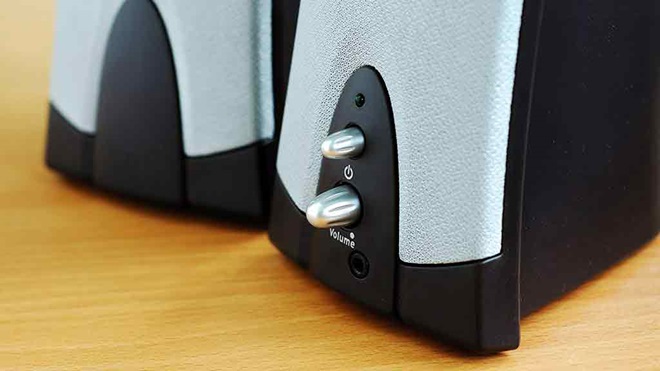We no longer PC speakers. For more CHOICE recommendations, check out our top 50 product reviews.
You've probably already noticed this, but the compact speakers that come with your laptop or all-in-one desktop really aren't worth talking about. And traditional tower or modular desktop PCs often don't even have speakers, so if you're using your PC for games, music or movies, then buying a set of external speakers really is a no-brainer.
On this page:
- What do the numbers mean?
- Get your head around surround sound
- What else should you keep in mind?
- How much do you need to spend?
We're on your side
For more than 60 years, we've been making a difference for Australian consumers. In that time, we've never taken ads or sponsorship.
Instead we're funded by members who value expert reviews and independent product testing.
With no self-interest behind our advice, you don't just buy smarter, you get the answers that you need.
You know without hesitation what's safe for you and your family.
And you'll never be alone when something goes wrong or a business treats you unfairly.
Learn more about CHOICE membership today
What do the numbers mean?
There are three different types of speaker systems for your PC, all with number systems to describe what they are:
- 2.0 — Stereo, is the most basic system, with just a left and right speaker box (called a cabinet). Each cabinet will have at least one full-range speaker (also known as a driver).
- 2.1 — is stereo plus a subwoofer, which sits on the floor and delivers the deep rumble that adds depth to the overall sound.
- 5.1 — Surround sound. This is five speakers – left, right and middle channel in front of you, as well as left and right speakers at the rear – and a subwoofer.
Get your head around surround sound
Having more speakers doesn't necessarily mean getting better sound. The sound quality of a 2.1 unit can match or out-perform a 5.1 surround sound unit. But if you use your PC mostly for movies and gaming, then having speakers surrounding you can provide a more realistic audio experience. This is particularly true for gamers, as you can actually hear sound moving around you, a useful advantage when somebody in-game is sneaking up behind you.
We wouldn't recommend taking a 5.1 PC speaker set-up and trying to use it for your lounge room home theatre though. PC speakers are designed to give a personal surround sound experience, so in larger spaces like a lounge room, they can't deliver the same quality of sound. They also usually won't come with the required cables for a TV set-up anyway.
What else should you keep in mind?
- Once set up, PC speakers will usually continue to draw power even if they're in a low-power mode. Portable systems tend to use less energy.
- To get the full benefit of a surround sound system you'll actually need to set it up in surround mode, with two small speakers at left and right behind you.
- If you're looking for a surround sound system, then consider getting one with wireless speakers. This gets rid of the hassle of running wires around and behind you, meaning you're less likely to trip over if you get a bit too involved while gaming.
Cost
PC speakers generally range in price from $30 to $700, but can go higher too.
How much do you need to spend?
The good news is that you don't have to pay top dollar to get good sound. You don't need to buy huge speakers either – there are a fair few smaller units that perform just as well as the big boys.
In fact, size really doesn't matter that much when it comes to PC speakers because unlike in your lounge room setup, PC speakers sit a lot nearer to you when you're at your computer, and at close range, even small speakers can deliver big sound if they're of a decent quality.
Stock images: Getty, unless otherwise stated.



